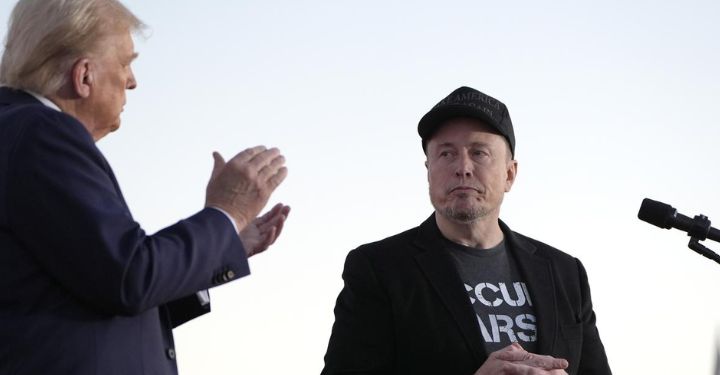Elon Musk is attempting to rebuild relations with former President Donald Trump following a heated exchange on social media that left both reputations bruised and investors on edge. In a series of new statements and carefully orchestrated public appearances, Musk admitted that his criticisms of Trump lacked nuance and suggested that restoring civility was in the country’s best interest.
The saga began when Musk made a string of aggressive posts accusing Trump of obstructing the release of documents related to the Epstein investigation. He claimed that Trump’s actions were inconsistent with his calls for law and order and questioned the former president’s commitment to transparency.
These comments sparked a furious response from Trump, who lashed out on his platform, Truth Social, accusing Musk of disloyalty. “Elon begged to be part of my administration. We supported his companies when no one else would. Now he attacks like a leftist hack,” Trump wrote. He also insinuated that SpaceX’s federal contracts, worth tens of billions of dollars, could be subject to review.
The escalation alarmed Wall Street and Washington alike. Musk’s companies rely heavily on government relationships. Tesla benefits from clean energy incentives, while SpaceX is a key partner for NASA and the Department of Defense. The potential loss or reevaluation of those relationships sparked concern, with Tesla’s stock experiencing brief volatility.
Facing growing pressure, Musk began deleting his most controversial posts. He later issued a tweet that seemed to strike a new tone: “I still believe transparency is essential. But my remarks about President Trump were unnecessarily antagonistic. My goal is not to divide but to hold all leaders accountable.”
Shortly afterward, Musk appeared on a livestream with prominent political commentator Lex Fridman, where he further clarified his position. “I wasn’t trying to start a war with Trump,” Musk said. “I believe in honesty, but I also believe in solutions. The tone I used didn’t help anyone—it just created more noise.”
Sources close to Musk say the shift was intentional. Advisors and board members reportedly urged him to deescalate the feud, warning that the risks far outweighed the benefits. Musk, who has often operated without a traditional communications team, is now said to be reconsidering how he engages in political discourse moving forward.
Meanwhile, Trump appears to have softened his rhetoric as well. In an interview with Fox News, he said, “Elon got emotional. We all do. But he’s built something great, and I don’t want to see it collapse over a misunderstanding.” He stopped short of fully reconciling, but the comment was seen by many as a clear attempt to lower the temperature.
Political observers note that both men have strategic reasons to keep the peace. Trump, who is gearing up for another presidential run, may not want to alienate a tech visionary with a massive online following. Musk, on the other hand, needs regulatory stability and uninterrupted access to government partnerships to keep his ambitious projects on track.
The near-crisis also reignited broader debates about the role of business leaders in politics. Musk’s boldness has been praised by some as a rare form of accountability, but others say it undermines institutional trust when billionaires wage personal wars with politicians online.
“Corporate activism is powerful,” said political strategist Amelia Ruiz. “But when it’s not guided by discipline or strategy, it can become a liability—both to the cause and the company.”
In the aftermath, Musk has returned to highlighting his technology ventures. He recently teased a new version of the Optimus robot and hinted at major updates to the Neuralink project. In doing so, he appears to be signaling a pivot back toward innovation rather than confrontation.
Still, the incident remains a cautionary tale about how quickly things can spiral in the digital age. One tweet can shake public trust, threaten business stability, and bring two of the most influential figures in the country to the brink of political warfare.
The hope, at least for now, is that this will serve as a turning point. In Musk’s words: “Let’s move forward—there’s too much work to do to waste time fighting.”




